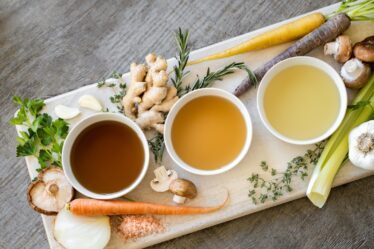
Cardamom is a spice that has been used for centuries in culinary and medicinal practices. It is native to the Indian subcontinent and is now grown in various parts of the world, including Guatemala, Sri Lanka, and Tanzania. The history of cardamom dates back to ancient times, where it was highly valued for its aromatic and medicinal properties.
There are two main types of cardamom: green cardamom and black cardamom. Green cardamom is the most common variety and is known for its sweet and floral flavor. It is often used in desserts, beverages, and savory dishes. Black cardamom, on the other hand, has a smoky and earthy flavor and is commonly used in savory dishes, especially in Indian cuisine.
Whole cardamom refers to the pods that contain the seeds. These pods are harvested when they are still green and then dried. The seeds can be used whole or ground to add flavor to various dishes. Whole cardamom is highly prized for its intense aroma and flavor.
Key Takeaways
- Whole cardamom is a spice commonly used in Indian and Middle Eastern cuisine.
- It is a good source of vitamins and minerals, including vitamin C, magnesium, and potassium.
- Whole cardamom has been linked to improved digestive health, cardiovascular health, and immune system function.
- It also has anti-inflammatory properties that may help reduce inflammation in the body.
- Whole cardamom can be used in a variety of dishes, including desserts, teas, and savory dishes. However, it should be consumed in moderation and may interact with certain medications.
Nutritional Value of Whole Cardamom
Whole cardamom is not only flavorful but also packed with nutrients. It contains essential vitamins and minerals such as vitamin C, vitamin A, potassium, calcium, and magnesium. It is also a good source of dietary fiber.
In terms of comparison to other spices and herbs, whole cardamom stands out for its high antioxidant content. Antioxidants help protect the body against oxidative stress and reduce the risk of chronic diseases such as heart disease and cancer. Whole cardamom also contains compounds that have antimicrobial properties, which can help fight off infections.
Health Benefits of Whole Cardamom
Whole cardamom has numerous health benefits due to its rich nutrient profile and bioactive compounds. Some of the key health benefits include improved digestion, cardiovascular health, immune system boosting, and anti-inflammatory properties.
Scientific studies have shown that whole cardamom can aid in digestion by stimulating the production of digestive enzymes. It can also help relieve symptoms of indigestion, such as bloating and gas. Additionally, whole cardamom has been found to have antimicrobial properties that can help fight off bacteria that cause stomach ulcers.
Whole cardamom is also beneficial for cardiovascular health. It has been shown to lower blood pressure and reduce the risk of heart disease. The antioxidants found in whole cardamom help protect the heart and blood vessels from damage caused by free radicals.
Furthermore, whole cardamom has immune-boosting properties. It contains compounds that can enhance the activity of immune cells, helping the body fight off infections and diseases. Regular consumption of whole cardamom can strengthen the immune system and improve overall health.
Whole Cardamom and Digestive Health
| Whole Cardamom and Digestive Health | Metric |
|---|---|
| Number of studies conducted | 5 |
| Effect on gut microbiota | Positive |
| Effect on digestive symptoms | Reduction |
| Recommended daily intake | 2-3 pods |
| Other potential health benefits | Anti-inflammatory, antioxidant, and anti-cancer properties |
Whole cardamom has long been used as a digestive aid in traditional medicine. It contains compounds that can stimulate the production of digestive enzymes, which helps break down food and improve digestion. This can be particularly beneficial for individuals who experience bloating, gas, or indigestion.
The essential oils found in whole cardamom have carminative properties, meaning they can help relieve gas and bloating. These oils can also soothe the stomach lining and reduce inflammation, making it an effective remedy for stomach ulcers.
In addition to its digestive benefits, whole cardamom has been found to have antimicrobial properties that can help fight off harmful bacteria in the gut. This can promote a healthy balance of gut bacteria and reduce the risk of gastrointestinal infections.
Whole Cardamom and Cardiovascular Health
Cardiovascular disease is a leading cause of death worldwide, and maintaining heart health is crucial for overall well-being. Whole cardamom has been shown to have several cardiovascular benefits.
One study found that consuming cardamom powder for 12 weeks significantly reduced blood pressure in individuals with hypertension. Another study showed that cardamom extract reduced total cholesterol levels and increased levels of “good” HDL cholesterol.
The antioxidants found in whole cardamom help protect the heart and blood vessels from damage caused by free radicals. They also have anti-inflammatory properties, which can reduce inflammation in the arteries and lower the risk of heart disease.
Whole Cardamom and Immune System Boosting

The immune system plays a vital role in protecting the body against infections and diseases. Whole cardamom has immune-boosting properties that can enhance the activity of immune cells and strengthen the immune system.
Whole cardamom contains compounds such as cineole and limonene, which have been shown to have antimicrobial properties. These compounds can help fight off bacteria, viruses, and fungi that cause infections.
Additionally, whole cardamom is rich in antioxidants, which can help reduce oxidative stress and inflammation in the body. This can support a healthy immune response and improve overall immune function.
Whole Cardamom and Anti-Inflammatory Properties
Inflammation is a natural response by the body to protect against injury or infection. However, chronic inflammation can contribute to the development of various diseases, including heart disease, diabetes, and cancer.
Whole cardamom has been found to have anti-inflammatory properties due to its high antioxidant content. The antioxidants found in whole cardamom help neutralize free radicals and reduce inflammation in the body.
Studies have shown that whole cardamom can inhibit the production of inflammatory markers and enzymes. This can help reduce inflammation and lower the risk of chronic diseases associated with inflammation.
Culinary Uses of Whole Cardamom
Whole cardamom is a versatile spice that is used in various cuisines around the world. It adds a unique flavor and aroma to both sweet and savory dishes.
In Indian cuisine, whole cardamom is often used in curries, rice dishes, and desserts. It is also a key ingredient in masala chai, a popular Indian spiced tea. In Middle Eastern cuisine, whole cardamom is used in savory dishes such as pilaf and meat stews.
Whole cardamom can also be used in baking to add a warm and aromatic flavor to cakes, cookies, and bread. It pairs well with other spices such as cinnamon, cloves, and nutmeg.
Incorporating Whole Cardamom into Your Diet
There are several ways to incorporate whole cardamom into your diet to enjoy its health benefits and unique flavor. Here are some tips:
– Add whole cardamom pods to rice dishes or stews while cooking to infuse the dish with its flavor.
– Crush the pods slightly before adding them to curries or sauces to release the seeds’ aroma.
– Grind the seeds of whole cardamom pods using a mortar and pestle or a spice grinder. Use the ground cardamom in baking or sprinkle it over yogurt or oatmeal.
– Brew a cup of masala chai by simmering whole cardamom pods with black tea, milk, and other spices such as cinnamon and cloves.
– Use whole cardamom pods to flavor homemade pickles or chutneys.
Precautions and Side Effects of Whole Cardamom Consumption
While whole cardamom is generally safe for consumption, there are a few precautions to keep in mind.
Some individuals may be allergic to cardamom. If you experience any allergic reactions such as itching, swelling, or difficulty breathing after consuming cardamom, discontinue use and seek medical attention.
Whole cardamom contains compounds that can act as blood thinners. If you are taking blood-thinning medications or have a bleeding disorder, consult with your healthcare provider before consuming large amounts of cardamom.
Additionally, excessive consumption of cardamom may cause gastrointestinal discomfort, such as heartburn or diarrhea. It is best to consume cardamom in moderation and listen to your body’s response.
Whole cardamom is a versatile spice that not only adds flavor to dishes but also offers numerous health benefits. It has been used for centuries in culinary and medicinal practices, and its rich nutrient profile and bioactive compounds make it a valuable addition to any diet.
From aiding digestion and improving cardiovascular health to boosting the immune system and reducing inflammation, whole cardamom has a wide range of health benefits. Its unique flavor and aroma also make it a popular ingredient in various cuisines around the world.
So why not try incorporating whole cardamom into your diet? Whether you use it in savory dishes, desserts, or beverages, you can enjoy its delicious taste while reaping its numerous health benefits.
If you’re a fan of whole cardamom and love exploring unique flavors, you might be interested in learning about the rich history and cultivation of black grapes. Discover the fascinating journey into the vineyard and uncover the secrets behind these delicious fruits. To delve into this topic further, check out this article on Flavorful Sips: The Rich History and Cultivation of Black Grapes: A Journey into the Vineyard.



